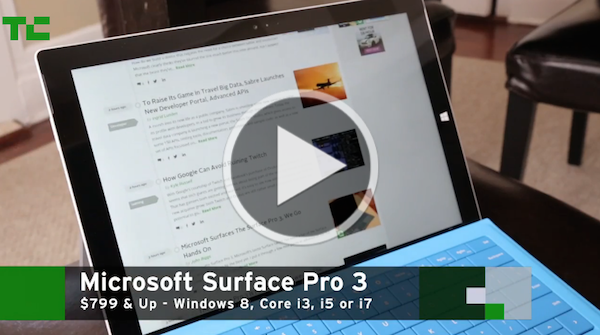On today’s broadcast, custodians are battling for your business with their technology solutions. Which one is coming out on top? Hacked celebrity photos have been posted all over the Internet. How are you protecting your cloud data so you don’t embarrass yourself in front of clients? And Box is thinking outside of the cloud file storage, uh, box. Find out which new initiatives offer the best efficiency gains for financial advisors.
So get ready, FPPad Bits and Bytes begins now.
(Watch FPPad Bits and Bytes on YouTube)
This week’s episode of Bits and Bytes is brought to you by Total Rebalance Expert, the industry’s largest, privately owned portfolio rebalancing software provider.
Now available as a part of the Orion Advisor Services platform, TRX features tax-efficient rebalancing, an easy to use interface, and more, all at an affordable price. Learn how you can gain a half a million dollar return on your technology investment by downloading their latest white paper at fppad.com/trx
Here are the links to this week’s top stories:
Tech Update: What the Big Custodians Now Offer from Financial Planning
[This week’s top story comes from Joel Bruckenstein and his article in Financial Planning magazine. This month, Bruckenstein covered technology updates that the four major custodians have introduced, or are planning to introduce shortly, to financial advisors.
First on the list is Pershing Advisor Solutions, which most recently unveiled a new client portal called NetXInvestor, designed to be the single resource clients can access to view their portfolio holdings, access documents stored in the online vault, and in the near future, collaborate with their advisor through a secure messaging system.
Next is TD Ameritrade Institutional and its rollout of the Veo Open Access dashboard, which Bruckenstein said is poised to have the “most far-reaching impact” for advisors. The dashboard aims to unify your experience when using CRM, portfolio management, document management and other technologies. So instead of bouncing around from window to window, the dashboard leverages deep integrations with over 75 vendor integrations including Redtail CRM, Orion Advisor Services, and MoneyGuidePro to review, edit, and update data without leaving the Open Access dashboard.
Third up is Schwab Advisor Services, as Bruckenstein highlighted incremental updates to its esignature support, streamlined trade uploads from the Tamarac rebalancing soft are, and the integration of Morningstar Office to Schwab’ OpenView Gateway. Of particular interest is Schwab’s upcoming PM squared portfolio management platform, a completely new online solution that, according to Schwab’s Neesha Hathi, should be in limited beta testing as we speak.
And finally, updates on Fidelity Institutional Wealth Services rounded out the review, as the company’s WealthCentral platform will soon offer account-opening integration with Redtail and Skience for Salesforce, single sign on and trade order imports from Tamarac, portfolio imports into Naviplan and MoneyGuidePro, and other enhancements.] Over the last several years, the four major custodians have done a good job of enhancing their technology platforms. While there are some clear differences across the industry, it is fair to say that today’s platforms are far superior to what was being offered a few years ago.
You’re Reacting to Celebgate Wrong from Yahoo! Tech
Download my free Defend against hacking, phishing, and spoofing attacks handout
[Next up is news on cloud security, as I’m sure you might have heard that compromising photos of celebrities were leaked, apparently accessed from mobile device backups in the cloud. The Internet blew up, saying “Apple was hacked” and “iCloud has a security flaw.” Well, maybe not.
Yes, many of the private photos were obtained from the cloud, including Apple iCloud, but the method by which they were obtained is pretty old fashioned. Hackers used brute force attacks to successfully crack passwords and then correctly answered security questions that were far too basic, and the rest is history. So what can you do to prevent the sensitive data you manage from falling into the wrong hands?
Use long passwords, use a unique password for each website, and obfuscate answers to security questions. Instead of answering using Honda Civic as the make and model of your first car, use the word green, which might have been the color of your first car.
I have a lot more tips on keeping your data safe in a free handout you can downloaded, which is linked along with this week’s top stories.] Ever since somebody released nude photos of female movie stars this week, the wild overreactions have been clogging the Interwebs. Most of the hysteria runs along one of a few lines, and a lot of it is plain wrong.
Box’s Next Act: Box for Industries, Introducing Box Workflow, and BoxWorks 2014: New Ways to Collaborate in the Cloud from Box
[And finally, the online cloud file storage market is getting very crowded, so some of the top players are looking to set themselves apart from the competition. Case in point is Box, who this week announced several new initiatives, including Box for Industries, Box Workflow, and Box for Office 365.
Box for Industries expands on the Box OneCloud application marketplace and now highlights integrated solutions for verticals such as health care, education, and more, but notable absent is financial services. Box Workflow adds business process capabilities to firms by leveraging automation and document metadata. And Box for Office 356 better integrates Box with Microsoft’s online office suite which, if you’re not satisfied with OneDrive, opens up another cloud storage alternative.] Today… we’re announcing Box for Industries, a new initiative to accelerate business transformation in every business by combining tailored solutions leveraging Box’s metadata, workflow, compliance, and platform capabilities; industry-specific applications from curated third-party developers and partners; and world-class implementation services from Box and key system integrator partners.
Here are the stories that didn’t make this week’s broadcast:
Worth The Wait from Financial Advisor Magazine
It has taken much longer than anticipated, but Junxure CRM (www.junxure.com), a firm that integrates CRM technology, consulting and training for financial advisors, has finally announced the general release of “Junxure Cloud,” its comprehensive, cloud-based suite of CRM/office management products for financial advisors. After trying the application out for a few days, I’m happy to report that it was well worth waiting for.
Riskalyze announces Compliance Cloud to pinpoint risky portfolios from FPPad
Riskalyze Compliance Cloud aims to single out portfolios that drift outside a client’s risk tolerance
Online Adviser’s New Target: Investors With $1 Million or More from the Wall Street Journal
One of those online firms, sometimes dubbed “robo advisers,” is edging into the business of providing wealth-management services to people with $1 million or more.











